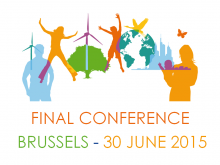While the current macroeconomic setting is slowly moving towards financing the green/low carbon economy, complementary fiscal and monetary policies as well as private and public investments are needed to facilitate this transition. This report analyses the role of finance and banking among the factors that support the adoption of eco innovation in the realms of energy efficiency and CO2 abatement. It finds that firms need additional external financial support to successfully contribute to achievement of the EU’s 2050 climate and energy policy targets. Moreover, firms are currently isolated islands in the green economy with respect to other firms and financial institutions. At the very least, cooperation among corporate firms will be needed to cope with radical and not just incremental innovations. The report also finds that in the current situation financial barriers, such as current regulations as well as risk perceptions and short termism in finance, are a deterrent for the innovative capacity of EU’s economy. In this regard, the complementarity among actions that tends to relax ‘barriers’ can be seen as a possible way out. Environmental Innovation is stimulated where financial barriers are (perceived) as low and other policies help to increase collaboration, reduce technical and technological lock-ins, enhance competition on markets dominated by established enterprises, and to improve existing regulations and structures providing incentives to eco-innovate.
Attachment:
Citation:
Funding:
Year of publication:
Number of pages:
Table of contents:
|
1 |
Executive summary |
4 |
|
2 |
Introduction |
7 |
|
2.1 |
The setting: banking/financial barriers and the low carbon economy |
7 |
|
2.2 |
Finance, banking and the transition to a low carbon economy: Additional conceptual issues 10 |
10 |
|
3 |
Empirical evidence |
15 |
|
3.1 |
Financial barriers, policy and eco innovation adoption. EU evidence from firm data |
15 |
|
3.1.1 |
The role of financial constraints as a barrier to eco-innovation |
15 |
|
3.1.2 |
Determinants of EI |
18 |
|
3.1.3 |
Empirical investigation |
19 |
|
3.2 |
The complementarity of financial and policy barriers |
31 |
|
3.2.1 |
Data and empirical strategy |
33 |
|
3.2.2 |
Main results |
36 |
|
3.3 |
Stakeholder's interviews. Main outcomes |
40 |
|
|
Appendix |
50 |


